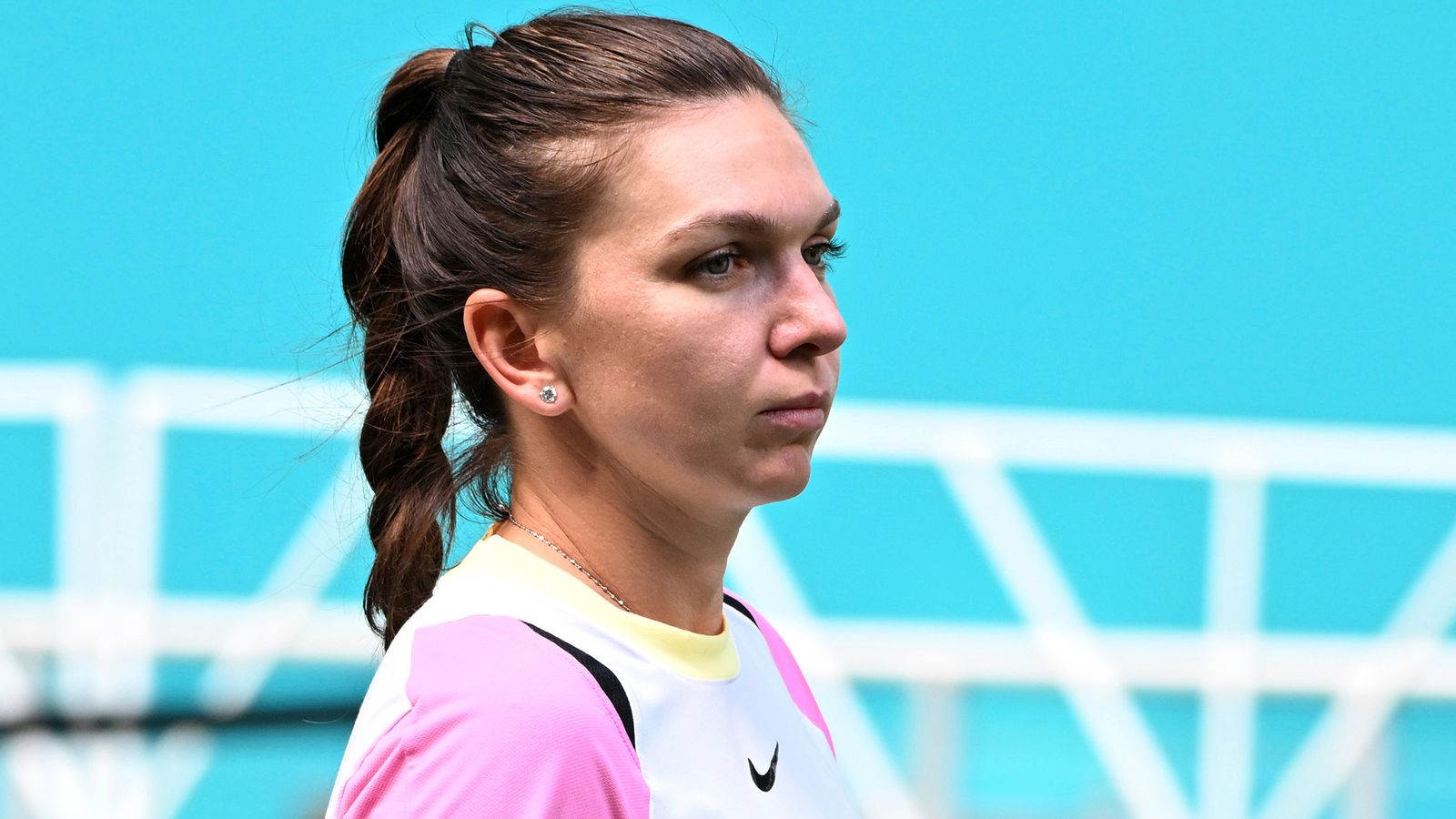
Andrea Petkovic, a former tennis star turned commentator, recently weighed in on Simona Halep’s comments about the dominance of world number one Iga Swiatek, sparking fresh debate in the tennis world. Halep, who has been embroiled in controversy following her suspension for anti-doping violations, had expressed admiration for Swiatek but made statements that raised eyebrows. Petkovic, known for her articulate insights, didn’t hold back in offering a reality check on Halep’s remarks, highlighting key nuances about the current state of women’s tennis and the challenges of maintaining supremacy in the sport.
Swiatek, the Polish sensation who has taken the WTA by storm, has established herself as a dominant force in women’s tennis. After rising to the top with three Grand Slam titles and a streak of impressive performances, Swiatek has drawn comparisons to legends like Serena Williams. Halep, a former world number one and two-time Grand Slam champion, recently spoke about Swiatek’s consistency and dominance, calling her a “complete player” and a model for aspiring athletes. However, Halep’s comments also hinted at the pressure Swiatek faces to sustain her level, a sentiment that struck a chord with Petkovic.
During a recent interview, Petkovic acknowledged the merit in Halep’s praise for Swiatek but suggested that Halep’s own circumstances might have influenced her perspective. Halep, who has faced a year-long suspension due to a doping scandal, has been vocal about the difficulties of maintaining peak performance over time. Petkovic pointed out that while Halep’s experience as a top player adds weight to her insights, her current situation could cloud her judgment about the challenges Swiatek faces.
Petkovic also addressed the broader context of Halep’s remarks, emphasizing that dominance in tennis is never guaranteed. She noted that Swiatek’s rise has coincided with a transitional period in women’s tennis, where several top players have retired or faced injuries. “Iga is undoubtedly a phenomenal athlete, but she’s competing in an era where the landscape is different,” Petkovic explained. “The absence of long-time competitors like Serena Williams and the inconsistency of others has given her more room to shine. That doesn’t take away from her achievements, but it’s a reality we can’t ignore.”
Swiatek’s success has not come without challenges. While her game combines power, precision, and mental fortitude, she has faced stiff competition from emerging players like Aryna Sabalenka and Coco Gauff. Petkovic highlighted this dynamic, arguing that Swiatek’s ability to adapt to the ever-evolving WTA field is what sets her apart. She stressed that dominance in tennis isn’t just about winning matches but also about navigating the pressures of being a target for every player on the tour.
The discussion also delved into Halep’s legacy and her position in the current tennis landscape. Petkovic suggested that Halep’s suspension has added a layer of complexity to her commentary. “Simona is a great champion, and her insights are valuable,” Petkovic said. “But it’s hard to separate her current challenges from her views on the game. She knows what it’s like to be at the top, but she’s also dealing with a difficult period in her career. That duality can shape how she interprets someone else’s success.”
Halep’s ongoing doping case has been a polarizing topic in tennis. The Romanian star has maintained her innocence, insisting that the banned substance found in her system was ingested accidentally. However, the case has overshadowed her achievements and raised questions about her future in the sport. Petkovic’s remarks about Halep’s situation were measured but candid, suggesting that her suspension might have influenced her recent comments on Swiatek.
Petkovic’s critique extended to the broader expectations placed on top players. She argued that Swiatek, like Halep before her, faces immense pressure to perform consistently, a burden that can take a toll both physically and mentally. “It’s easy to forget how young Iga is and how much she’s already accomplished,” Petkovic said. “We should celebrate her success while acknowledging that every player goes through ups and downs. Simona knows this better than anyone, which makes her perspective both insightful and, at times, overly cautious.”
The debate around Halep’s comments and Petkovic’s response has sparked wider conversations about the nature of success in women’s tennis. As Swiatek continues to dominate, questions about her longevity and ability to handle pressure are inevitable. Petkovic’s analysis serves as a reminder that tennis, like any sport, is as much about mental resilience as it is about skill.
For Swiatek, the road ahead will be challenging but full of opportunities. She has already proven her mettle by claiming multiple Grand Slam titles and defending her top ranking against fierce competition. However, as Petkovic and Halep both noted, sustaining success in tennis requires constant evolution. Whether Swiatek can navigate the pressures of being at the top while fending off rising stars will define her legacy.
As for Halep, her journey remains uncertain. While her suspension has sidelined her from the game, her voice as a former champion continues to resonate in tennis circles. Petkovic’s reality check underscores the importance of context when evaluating players’ comments and achievements. Both Halep and Swiatek have contributed to the richness of the sport, albeit in different ways and under vastly different circumstances.
The exchange between Petkovic and Halep highlights the complexities of modern tennis, where success is multifaceted and perspectives are shaped by individual experiences. For fans, it’s a reminder that every champion, from Halep to Swiatek, navigates a unique path filled with triumphs and challenges. How they handle those challenges defines not just their careers but also the narratives that shape the sport.
Leave a Reply